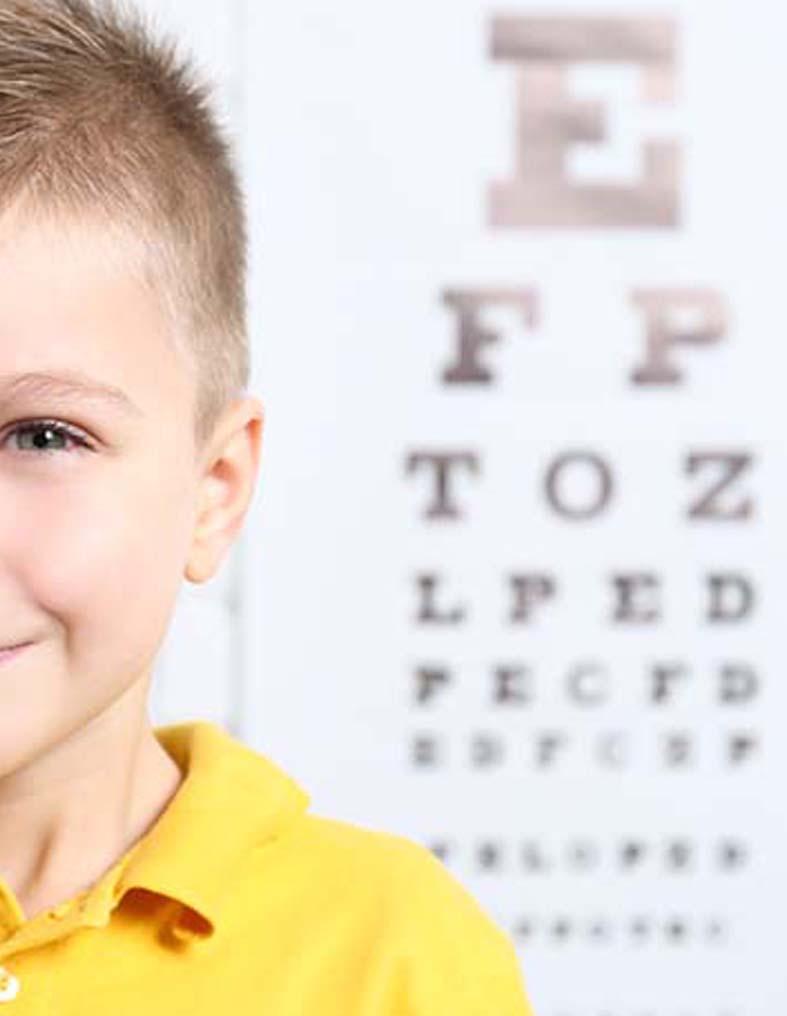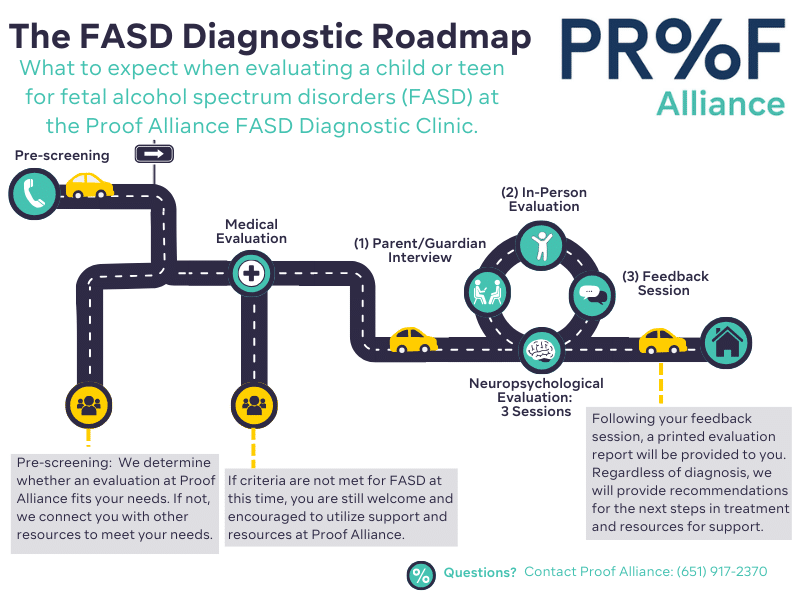
Start the intake process now.
Think it might be an FASD? Proof Alliance offers evaluations primarily for children between the ages of 2 and 17. An FASD evaluation is a highly specialized process and can take some time.
However, pursuing an evaluation early can make a big difference in getting the right help and support. We accept most insurance plans, including Medical Assistance/Medicaid. Financial assistance may be available.
To begin the intake process or for more information, please email us at clinic@proofalliance.org or call us at 651-917-2370.

Contact our Clinic.
Email: clinic@proofalliance.org
Phone: 651-917-2370
Fax: 651-313-7888
Mail: 1876 Minnehaha Ave. W., St. Paul, Minnesota 55104

An accurate diagnosis is key.
Research shows that accurate diagnosis and interventions are important for those with prenatal alcohol exposure.
Click here to review other FASD diagnostic evaluation clinics in Minnesota.
The Path to Diagnosis
Review and download The Proof Diagnostic Process Roadmap, a helpful guide to understanding how the FASD evaluation process works.

The Steps to Diagnosis
What to expect when evaluating a child or teen for FASD at the Proof Alliance FASD Diagnostic Clinic.
- Short phone call with parent/guardian
- Intake packet – Including releases and consent forms
- Once the intake packet is returned, you will be added to the scheduling list, and we will gather the necessary records.
- One session with a nurse practitioner (2.5 hours)
- The nurse practitioner will gather medical history including early health history and prenatal alcohol exposure history
- The nurse practitioner will assess the child’s facial features and conduct a brief physical exam
- Portions of the evaluation may be completed using telehealth.
- Three sessions with a clinical psychologist
- Parent/guardian interview (1 hour)
- The psychologist will discuss the child’s areas of strength, their challenges, and needs with the caregiver.
- This may be completed using telehealth.
- In-person evaluation (3 hours)
- The psychologist will assess the child’s learning, problem-solving, language, memory, and motor skills, as well as their emotions and behaviors, through a variety of activities.
- Feedback session (45 minutes)
- The psychologist will discuss the evaluation results, including diagnoses, treatment plans and recommendations for home, school, and community services, with caregivers.
- This may be completed using telehealth.
- Parent/guardian interview (1 hour)
A summary of the findings is prepared along with any specific recommendations for follow-up support, resources and treatment.
What can we help
you with today?
I want:




